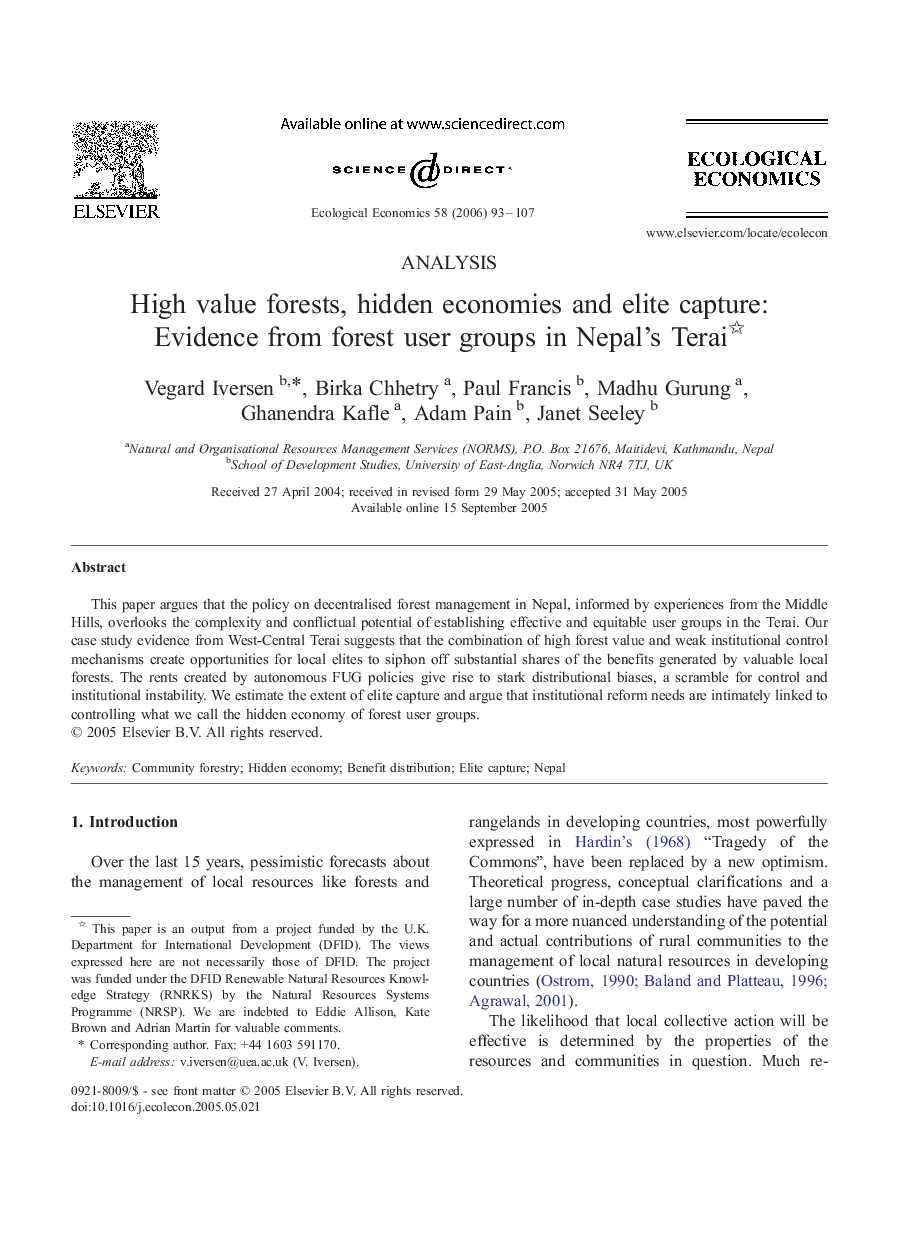| Article ID | Journal | Published Year | Pages | File Type |
|---|---|---|---|---|
| 5052362 | Ecological Economics | 2006 | 15 Pages |
Abstract
This paper argues that the policy on decentralised forest management in Nepal, informed by experiences from the Middle Hills, overlooks the complexity and conflictual potential of establishing effective and equitable user groups in the Terai. Our case study evidence from West-Central Terai suggests that the combination of high forest value and weak institutional control mechanisms create opportunities for local elites to siphon off substantial shares of the benefits generated by valuable local forests. The rents created by autonomous FUG policies give rise to stark distributional biases, a scramble for control and institutional instability. We estimate the extent of elite capture and argue that institutional reform needs are intimately linked to controlling what we call the hidden economy of forest user groups.
Related Topics
Life Sciences
Agricultural and Biological Sciences
Ecology, Evolution, Behavior and Systematics
Authors
Vegard Iversen, Birka Chhetry, Paul Francis, Madhu Gurung, Ghanendra Kafle, Adam Pain, Janet Seeley,
